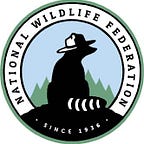On This We Agree
Resolved to Keep it Public
By Anna Kramer
In the midst of increasing attacks on our public lands — from a House rule that values our public lands at $0, to efforts to rescind or shrink national monuments, to a thwarted attempt to “dispose” of 3.3 million acres of public lands — three House members, one Republican and two Democrats, have joined together in stating their belief in the innumerable values of our national public lands.
Representatives Alan Lowenthal (D-CA), Dave Reichert (R-WA), and Raúl Grijalva (D-AZ), introduced House Concurrent Resolution 27 on February 16th, 2017. The title: “Expressing the sense of Congress that America’s Federal public lands are national treasures that belong to all Americans.”
This affirmation of bipartisan support for our public lands tells us nothing most Americans don’t already know about our incredible heritage. However, it does remind us why our public lands are worth fighting for, and why we cannot allow the loss of these national treasures.
The Show of Bipartisan Support Makes it Clear: We Are Resolved to Keep it Public
“Whereas our current Federal public lands are a network of treasured places of all varieties and designations used for a vast range of economic, cultural, and recreational activities;”
Whether we hike, bike, hunt, fish, ski, watch wildlife, or simply admire these stunning landscapes, there is a public land for everyone. Our public lands provide critical wildlife habitat, provide spectacular recreational opportunities, benefit our economy through the outdoor industry, energy, ranching and more, and are a foundational part of American history and the American experience.
“Whereas Federal public lands support thousands of jobs in gateway communities across the country;”
It is a fact that our national public lands are good for the economy, from the national down to the local level. In 2015, the 307.2 million recreation visits to our national parks resulted in $16.9 billion in spending in gateway regions — those are areas within 60 miles of the parks. That spending supported 295,000 jobs and $11.1 billion in labor income.
“Whereas Federal public lands preserve invaluable habitat for fish and wildlife;”
With growing pressures to wildlife populations from habitat loss, pollution, climate change, and more, our public lands are increasingly essential for wildlife populations to endure these pressures and continue to thrive. These habitat protections are especially important for endangered species, some of which were on the doorstep of extinction until dedicated recovery efforts on our public lands brought them back from the brink.
“Whereas Federal public lands contain places of cultural and religious significance to American Indians and Alaska Natives, such as ancestral burial grounds, fishing sites, and lands that supply traditional foods and medicines;”
Before public lands became designated public lands, Native peoples lived in these landscapes, and they sustain relationships to and usage of these places to this day. Their relationships to these lands are an essential component of a diverse and inclusive approach to our public lands, and are a key part of these landscapes’ enduring value.
“Whereas Federal public lands produce essential ecosystem services;”
This is a technical way of saying that our public lands help provide clean air and water, moderate the climate, absorb carbon dioxide and sustain overall ecosystem health. Not only are these “services” essential for life on earth to function, but they provide major economic benefits as well: for example, our national forest lands protect many critical watersheds, with the value of water from national forest lands estimated to be worth $7.2 billion annually.
“Now, therefore, be it Resolved by the House of Representatives (the Senate concurring), That it is the sense of Congress that America’s Federal public lands are a national treasure that belong to all Americans and which should be maintained for future generations.”
We could not agree more, Representatives Lowenthal, Reichert, & Grijalva. This resolution unfortunately is unlikely to even make it out of committee, and while it lacks the teeth to halt the many attacks on our public lands, nevertheless, it is an undeniable bipartisan statement in support our public lands.
On its first day back in session, the House of Representatives passed a rule that essentially declared that the loss of our national public lands would come at no cost to our nations. We know that is just not true. Our public lands not only have tremendous economic value — from the strength of the $646 billion outdoor industry to the greater rates of job growth in communities near public lands — but they also possess values that cannot be counted in dollars and cents, or in jobs and tax revenues.
Our public lands are part of a priceless American heritage, the result of farsighted conservationists who saw the importance of wildlife and protected landscapes. They are the sites of memories, of learning and of adventure. Our public lands belong to each and every American, and that is a birthright that we will always protect and defend. On these things, we are resolved.
Join us and tell your members of Congress you are resolved to keep public lands in public hands for the benefit of all Americans.
The National Wildlife Federation is dedicated to protecting our public lands for wildlife and for future generations. Join us in opposing attacks on our public lands: follow us on Facebook, Twitter, and Instagram to learn more.
